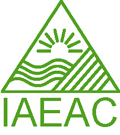Developing phage-based nanoprobes for rapid pathogen separation and detection
Ziyuan Wang1, Troy C. Hinkley2, Juhong Chen2, Sam D. Alcaine2, David A. Sela1, Sam R. Nugen2
1: Department of Food Science, University of Massachusetts, Amherst; 2: Department of Food Science, Cornell University, United States of America
With increasing concerns regarding the food safety of minimally processed foods such as fruits and vegetables, the food and agriculture industries would benefit greatly from a rapid screening method to determine the presence of potential pathogens in complex matrices. Such a tool could help reduce foodborne illness by allowing farmers, distributors, manufacturers and retailers the ability to determine initial product quality and safety. Advances in nanotechnology have enabled many new platforms which can be used for these purposes.
While the concept of “nanobots” has until now been relegated to science fiction, the Nugen Research Group has utilized advances in nanotechnology and synthetic biology towards the development of hybrid bio-inorganic systems consisting of engineered viruses which have been magnetized through oriented conjugation to magnetic nanoparticles. While nanotechnology has enabled the synthesis and conjugation of high speed magnetic particles, synthetic biology allows us to “program” the virus to perform customized functions.
We are currently developing bacteriophage-based nanoprobes which can separate bacteria from a complex sample, and then specifically select for viable targets for detection. We have genetically engineered the phages to express conjugation moieties on the capsid surface and for the insertion of engineered enzyme genes for a colorimetric detection.
Compared with immune-based separation schemes, bacteriophages had a much stronger attachment to the bacterial surface. The attachment was stronger in all extreme sample conditions including pH, temperature, and salt concentration. The phages have been genetically engineered to insert a gene for an engineered enzyme into the target host to allow for a highly specific and sensitive detection of viable bacteria which is low-cost and portable.
Sam R. Nugen

Sam R. Nugen received his B.S. in Animal Science from the University of Vermont and his M.S. and Ph.D. in Food Science from Cornell University. He was previously a Research Engineer at Kraft Foods prior to returning to Cornell University to pursue his Ph.D. where he studied biosensor design. He is currently an Associate Professor at the University of Massachusetts, Amherst where the Nugen Research Group focuses on rapid detection technology to monitor food and water safety and quality. The research includes microfluidics fabrication, magnetic nanoparticle synthesis and bacteriophage engineering for bacteria separation and detection. Professor Nugen recently received the Future Leaders Award from the International Life Sciences Institute for his work on rapid bacteria detection. He now serves as a scientific advisor for the International Life Sciences Institute. In the Summer of 2016 Professor Nugen will join the faculty of the Department of Food Science at Cornell University where he will continue his work on pathogen separation and detection.

